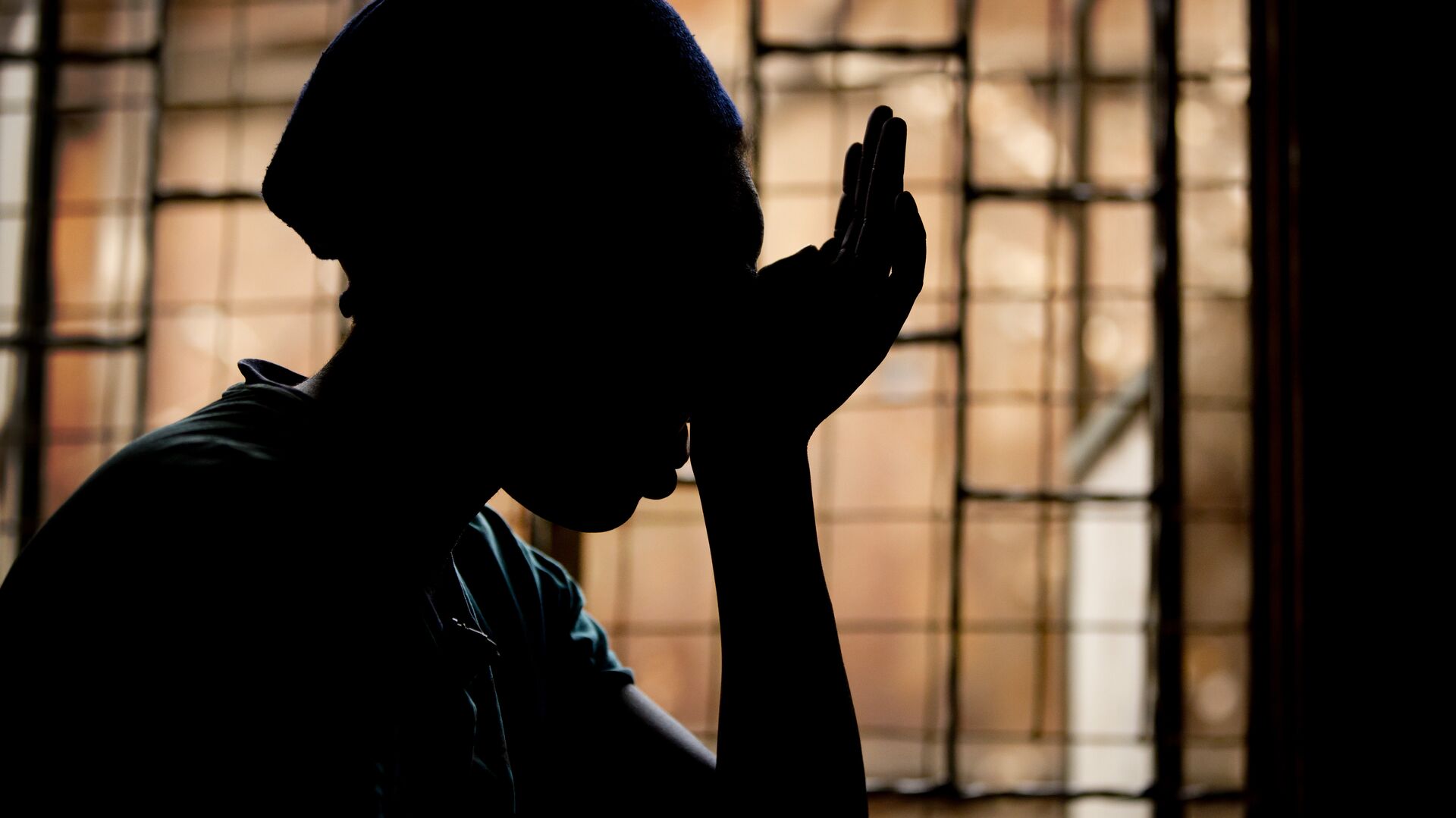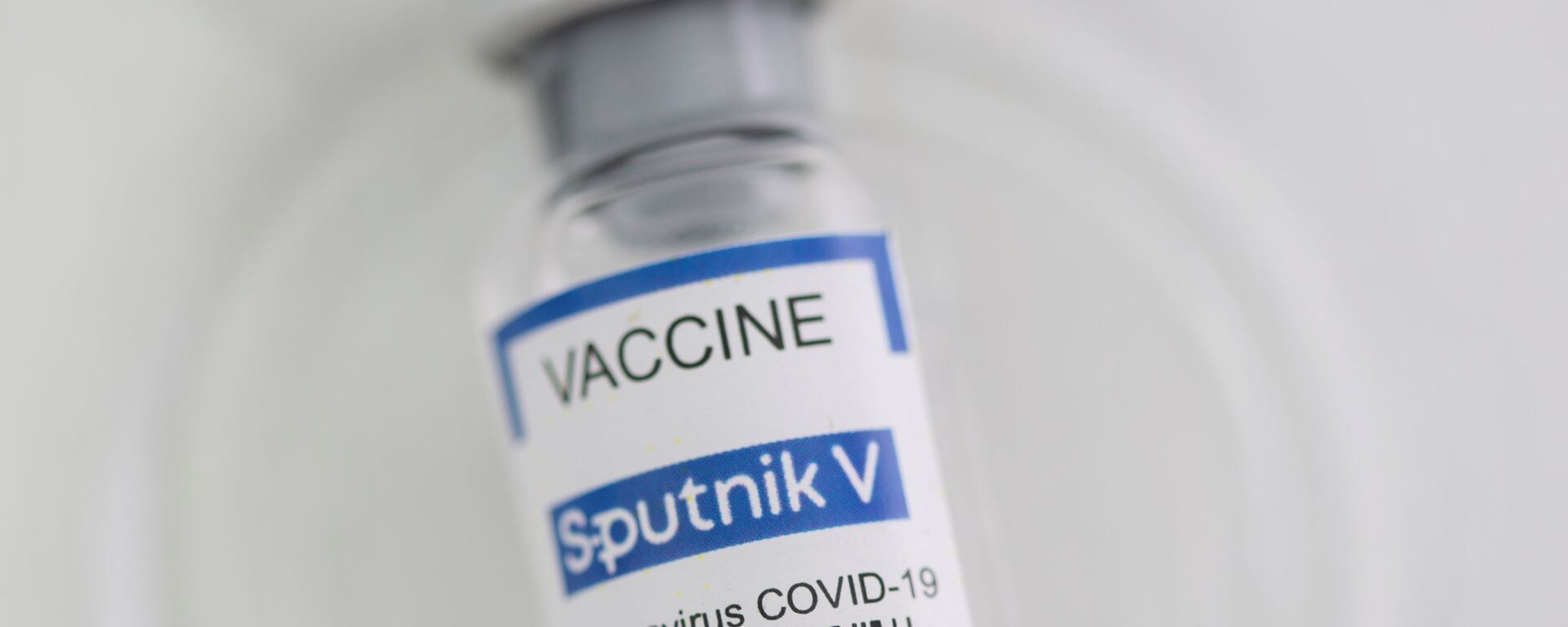https://sputnikglobe.com/20221201/how-africa-making-progress-in-eliminating-hivaids-despite-poverty-inequality--fraudsters-1104943074.html
How Africa Making Progress in Eliminating HIV/AIDS Despite Poverty, Inequality & Fraudsters
How Africa Making Progress in Eliminating HIV/AIDS Despite Poverty, Inequality & Fraudsters
Sputnik International
The world commemorates World AIDS Day on December 1 after the World Health Organization (WHO) established it in 1988. Africa is the world's most affected... 01.12.2022, Sputnik International
2022-12-01T16:09+0000
2022-12-01T16:09+0000
2022-12-02T14:54+0000
africa
us
opinion
hiv
hiv/aids
generic drugs
charity
treatment
south africa
uganda
https://cdn1.img.sputnikglobe.com/img/107027/85/1070278543_0:303:5899:3621_1920x0_80_0_0_81a78ceb25ff86c680e134c3d61fc6fb.jpg
Acquired immunodeficiency syndrome (AIDS) is a chronic, life-threatening condition caused by the human immunodeficiency virus (HIV). It continues to be one of Africa's biggest societal challenges and obstacles on the path to development.According to some estimates, about 38.4 million people worldwide are infected with HIV, with 25.6 million living in sub-Saharan Africa. What’s more, out of this figure, 1.85 million are younger than 15. Presently, people aged between 15 and 24 account for a third of all new infections on the continent, according to the WHO.Nonetheless, AIDS rates vary significantly between African countries with the majority of cases concentrated in the southern part of the continent, while North Africa and the Horn of Africa have significantly lower infection rates. As of 2021, there were 20.6 million people with HIV (53%) in eastern and southern Africa and five million (13%) in western and central Africa, according to the US Department of Health & Human Services. The most affected countries include Swaziland, Botswana, Lesotho, Malawi, Namibia, Nigeria, Kenya and Zimbabwe.According to Ajayi, factors driving the spread of HIV include poverty, transactional sex, lack of sex education, inadequate medical care, limited access to sexual and reproductive health services, exposure to sexual violence, discriminatory laws criminalizing HIV transmission, sex work and same-sex relationships, to name a few.Obstacles to ProgressThe international community has been aware of the problem for decades, taking efforts to curb the spread of the life-threatening condition.In early 2000, affordable antiretroviral drugs began arriving in the continent to save those living with the HIV burden. As of December 2021, 19.5 million Africans living with HIV received medicines to keep them alive and well, up from five million in 2010, according to the Joint United Nations Program on HIV and AIDS (UNAIDS). Despite the visible progress, new HIV infections remain high on the continent.UNAIDS insists that ending AIDS is achievable, citing a tested set of approaches that are proven to work, including in challenging circumstances. Earlier, the UN set an ambitious goal to eliminate the AIDS epidemic worldwide by 2030.However, international observers refer to economic and financial hurdles in the way of the effort, including embarrassing cases of apparent fraud committed by some private charities and pharma firms under the guise of life-saving initiatives.In March 2017, Wall Street analyst and investigative journalist Charles Ortel alleged in his interview with Sputnik that the Clinton Foundation (founded by former US President Bill Clinton) used its initiative to fight AIDS worldwide since 2002 to cash in on African AIDS/HIV sufferers. Ortel quoted the foundation's messy documentation and IRS filings, which led him to believe that the charity could have a cut of the money it collected for the noble cause.In October 2003, the charity inked agreements with four manufacturers of cheap generic antiretroviral (ARV) drugs to provide Africans infected with HIV with affordable medicines. To complicate matters further, the list included Ranbaxy Laboratories Ltd, India, which pleaded guilty in May 2013 to felony charges relating to the manufacture and distribution of certain ineffective adulterated drugs.Ortel, who has been conducting a private investigation into the Clinton Foundation's alleged fraud and pay-to-play schemes, did not rule out that the Indian firm, backed by the Clintons, delivered adulterated drugs to Africans with HIV/AIDS, thus exacerbating the infection. There is no information on whether the Clinton Foundation had a well-trained medical staff to orchestrate its HIV/AIDS initiative, the Wall Street analyst noted in 2017.Moreover, US investigative journalists revealed in 2013 that ARV drugs which Ranbaxy sold to the South African government to treat its AIDS-ravaged population had not been properly tested. They also alleged systemic fraud in Ranbaxy’s worldwide regulatory filings.In addition to the incidents when African governments got potentially ineffective medicines, many African states neither have enough professional health workers nor developed infrastructure to transport and store ARV drugs - which require refrigerated storage - given that 600 million people in Africa lack access to electricity, according to the International Energy Agency (IEA).The recent UNAIDS report Dangerous Inequalities revealed that inequalities and poverty are obstructing the end of AIDS on the continent."Poverty, which in some instances is growing (in part due to COVID-19) continues to put adolescent girls and young women in harm's way," said Adamson Muula, professor and head of Community & Environmental Health at Kamuzu University of Health Sciences, Malawi. "Poverty abounds in places where there is deficient leadership and statecraft not understood. Unfortunately, those people who have to fight HIV and AIDS may not have the means to influence national leadership."The overall lack of education concerning HIV transmission, myths and stigma accompanying the deadly disease also make it hard to eradicate it, according to Dr. Nelson Musoba, director general of Uganda AIDS Commission.African Countries Making ProgressRegardless of existing negative factors, African governments have demonstrated success in the fighting of the deadly disease. In November 2012, UNAIDS reported a more-than 50% reduction in the rate of new HIV infections across 25 low- and middle-income countries – more than half in Africa. The next decade also demonstrated positive data.For instance, Botswana became the first HIV-affected country to be certified by the WHO in December 2021 for achieving an important milestone in eliminating mother-to-child transmission of HIV. In particular, the country brought the mother-to-child HIV transmission rate to under 5%; provided antenatal care and antiretroviral treatment to more than 90% of pregnant women; and achieved an HIV case rate of fewer than 500 per 100,000 live births, according to the international health organization.For its part, Eswatini has achieved the 95-95-95 target, which means that 95% of the country's people living with HIV know their HIV status, of whom 95% are accessing treatment and that 95% of people on treatment have a suppressed viral load. The ‘95-95-95’ deadline is 2030, meaning Eswatini reached the target a decade in advance.But that is not all: more African countries have made excellent progress, including Cape Verde, Kenya, Lesotho, Malawi, Nigeria, Rwanda, Uganda and Zimbabwe, according to Torpey."Malawi has been reporting lower incidence than was the case over the past several years," emphasized Adamson Muula. "International partnerships such as the US government's PEPFAR program (also tackling malaria) and the Global Fund (also fighting malaria and tuberculosis) and resilient national health systems have ensured that the pandemic is reduced."Uganda, a landlocked country in East Africa, has been battling the HIV and AIDS epidemic for the last 40 years, noted Dr. Nelson Musoba. He explained that the country used the UNAIDS global approach "to customize it here at home and worked with that." There are things that have been done on the national level, but there are also mechanisms and best practices taken from the global experience, he explained.According to Muula, "it is pleasing to see" that for some time, the world has joined hands in the fight against HIV and AIDS, although challenges remain."African countries have individually and in partnership with others mounted interventions which have started to bear good fruit. In several African countries, the incidence (new cases) has been dropping each year," he stressed.The professor particularly singled out the universal "Test and Treat," which, according to him, has become a "game changer" in Africa. He also noted that in places where such health services are provided, reasonable levels of acceptability are often achieved.African countries can defeat the AIDS/HIV pandemic if they coordinate their efforts within the continent and instrumentalize international support, according to Dr. Glory Florentine, clinical doctor, trauma psychologist and SRHR expert from Tanzania.
https://sputnikglobe.com/20220328/sputnik-v-vaccine-maintains-79-efficacy-in-hiv-patients-on-antiretroviral-therapy-study-shows-1094254925.html
https://sputnikglobe.com/20170322/clintons-aids-initiative-1051848279.html
https://sputnikglobe.com/20221121/no-liability--no-transparency-why-cop27s-new-loss--damage-fund-triggers-skepticism-1104504783.html
https://sputnikglobe.com/20221005/why-western-countries-are-interested-in-maintaining-energy-poverty-in-africa-1101522117.html
https://sputnikglobe.com/20201201/who-calls-for-global-solidarity-on-world-aids-day-to-beat-hiv-covid-19-outbreaks-1081330233.html
https://sputnikglobe.com/20221024/uganda-blasts-eus-hypocrisy-amid-pipeline-spat-1102586840.html
africa
south africa
uganda
botswana
Sputnik International
feedback@sputniknews.com
+74956456601
MIA „Rosiya Segodnya“
2022
News
en_EN
Sputnik International
feedback@sputniknews.com
+74956456601
MIA „Rosiya Segodnya“
Sputnik International
feedback@sputniknews.com
+74956456601
MIA „Rosiya Segodnya“
aids, hiv, avr drugs, infection, programs to fight aids, hiv transmission, pandemic, united nations, the world health organization, south africa, central africa
aids, hiv, avr drugs, infection, programs to fight aids, hiv transmission, pandemic, united nations, the world health organization, south africa, central africa
Acquired immunodeficiency syndrome (AIDS) is a chronic, life-threatening condition caused by the human immunodeficiency virus (HIV). It continues to be one of Africa's biggest societal challenges and obstacles on the path to development.
According to some estimates, about 38.4 million people worldwide are infected with HIV, with 25.6 million living in sub-Saharan Africa. What’s more, out of this figure, 1.85 million are younger than 15. Presently, people aged between 15 and 24 account for a third of all new infections on the continent, according to the WHO.
Nonetheless, AIDS rates vary significantly between African countries with the majority of cases concentrated in the southern part of the continent, while North Africa and the Horn of Africa have significantly lower infection rates. As of 2021, there were 20.6 million people with HIV (53%) in eastern and southern Africa and five million (13%) in western and central Africa, according to the US Department of Health & Human Services. The most affected countries include Swaziland, Botswana, Lesotho, Malawi, Namibia, Nigeria, Kenya and Zimbabwe.
"South Africa is the epicenter of the HIV epidemic. However, the burden of HIV remains high in Zimbabwe, Botswana, and Eswatini," Dr. Anthony Ajayi, associate research scientist with the Population Dynamics and Sexual and Reproductive Health Unit at the African Population and Health Research Center, Kenya, told Sputnik. "There has been tremendous progress in reducing new HIV infections, particularly vertical transmission of HIV. However, Africa remains the epicenter of the HIV epidemic (…) Approximately 670,000 new HIV infections and 280,000 AIDS-related deaths were recorded in Eastern and Southern Africa in 2021."
According to Ajayi, factors driving the spread of HIV include poverty, transactional sex, lack of sex education, inadequate medical care, limited access to sexual and reproductive health services, exposure to sexual violence, discriminatory laws criminalizing HIV transmission, sex work and same-sex relationships, to name a few.
The international community has been aware of the problem for decades, taking efforts to curb the spread of the life-threatening condition.
In early 2000, affordable antiretroviral drugs began arriving in the continent to save those living with the HIV burden. As of December 2021, 19.5 million Africans living with HIV received medicines to keep them alive and well, up from five million in 2010, according to the Joint United Nations Program on HIV and AIDS (UNAIDS). Despite the visible progress, new HIV infections remain high on the continent.
UNAIDS
insists that ending AIDS is achievable, citing a tested set of approaches that are proven to work, including in challenging circumstances. Earlier, the UN set an ambitious goal to eliminate the AIDS epidemic worldwide by 2030.
However, international observers refer to economic and financial hurdles in the way of the effort, including embarrassing cases of apparent fraud committed by some private charities and pharma firms under the guise of life-saving initiatives.
In March 2017, Wall Street analyst and investigative journalist Charles Ortel alleged in his interview with Sputnik that the Clinton Foundation (founded by former US President Bill Clinton) used its initiative to fight AIDS worldwide since 2002 to cash in on African AIDS/HIV sufferers. Ortel quoted the foundation's messy documentation and IRS filings, which led him to believe that the charity could have a cut of the money it collected for the noble cause.
In October 2003, the charity inked agreements with four manufacturers of cheap generic antiretroviral (ARV) drugs to provide Africans infected with HIV with affordable medicines. To complicate matters further,
the list included Ranbaxy Laboratories Ltd, India, which
pleaded guilty in May 2013 to felony charges relating to the manufacture and distribution of certain ineffective adulterated drugs.
Ortel, who has been conducting a private investigation into the Clinton Foundation's alleged fraud and pay-to-play schemes, did not rule out that the Indian firm, backed by the Clintons, delivered adulterated drugs to Africans with HIV/AIDS, thus exacerbating the infection. There is no information on whether the Clinton Foundation had a well-trained medical staff to orchestrate its HIV/AIDS initiative, the Wall Street analyst noted in 2017.
Moreover, US investigative journalists revealed in 2013 that ARV drugs which Ranbaxy sold to the South African government to treat its AIDS-ravaged population had not been properly tested. They also alleged systemic fraud in Ranbaxy’s worldwide regulatory filings.
In addition to the incidents when African governments got potentially ineffective medicines, many African states neither have enough professional health workers nor developed infrastructure to transport and store ARV drugs - which require refrigerated storage - given that 600 million people in Africa lack access to electricity, according to the International Energy Agency (IEA).
The recent UNAIDS report Dangerous Inequalities revealed that inequalities and poverty are obstructing the end of AIDS on the continent.

21 November 2022, 14:39 GMT
"Poverty, which in some instances is growing (in part due to COVID-19) continues to put adolescent girls and young women in harm's way," said Adamson Muula, professor and head of Community & Environmental Health at Kamuzu University of Health Sciences, Malawi. "Poverty abounds in places where there is deficient leadership and statecraft not understood. Unfortunately, those people who have to fight HIV and AIDS may not have the means to influence national leadership."
The overall lack of education concerning HIV transmission, myths and stigma accompanying the deadly disease also make it hard to eradicate it, according to Dr. Nelson Musoba, director general of Uganda AIDS Commission.
"The young people do not have the full information about how HIV is transmitted, about how they can protect themselves, there are different levels of understanding that puts them at risk of getting infections," Musoba said. "There's also the question of stigma and discrimination. There are still lots of myths around HIV, but also because it's slightly too sexually transmitted. So people with HIV from a moral perspective looked immoral, that they are promiscuous, and that's how they got it. The stigma continues to be a high-risk type condition."
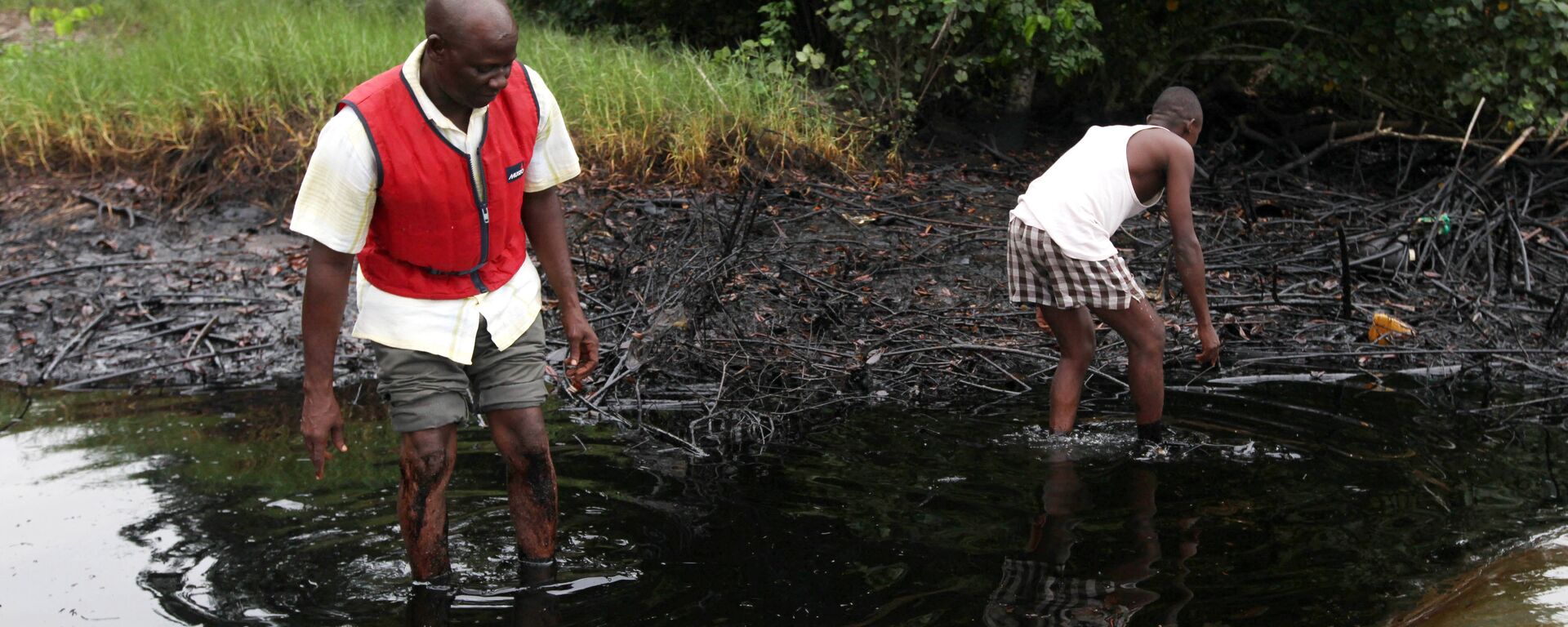
5 October 2022, 07:45 GMT
African Countries Making Progress
Regardless of existing negative factors, African governments have demonstrated success in the fighting of the deadly disease.
In November 2012, UNAIDS reported a more-than 50% reduction in the rate of new HIV infections across 25 low- and middle-income countries – more than half in Africa. The next decade also demonstrated positive data.
"Overall, progress has been tremendous, the number of new infections and AIDS-related deaths has declined," said Professor Kwasi Torpey, the dean of the School of Public Health, University of Ghana. "Africa is one of the few regions where the number of new infections is declining. The number of new infections in East and Southern Africa and West and Central Africa has declined by 44% and 43%, respectively, since 2010. The number of persons living with HIV on antiretroviral therapy has increased."
For instance, Botswana
became the first HIV-affected country to be certified by the WHO in December 2021 for achieving an important milestone in eliminating mother-to-child transmission of HIV.
In particular, the country brought the mother-to-child HIV transmission rate to under 5%; provided antenatal care and antiretroviral treatment to more than 90% of pregnant women; and achieved an HIV case rate of fewer than 500 per 100,000 live births, according to the international health organization.
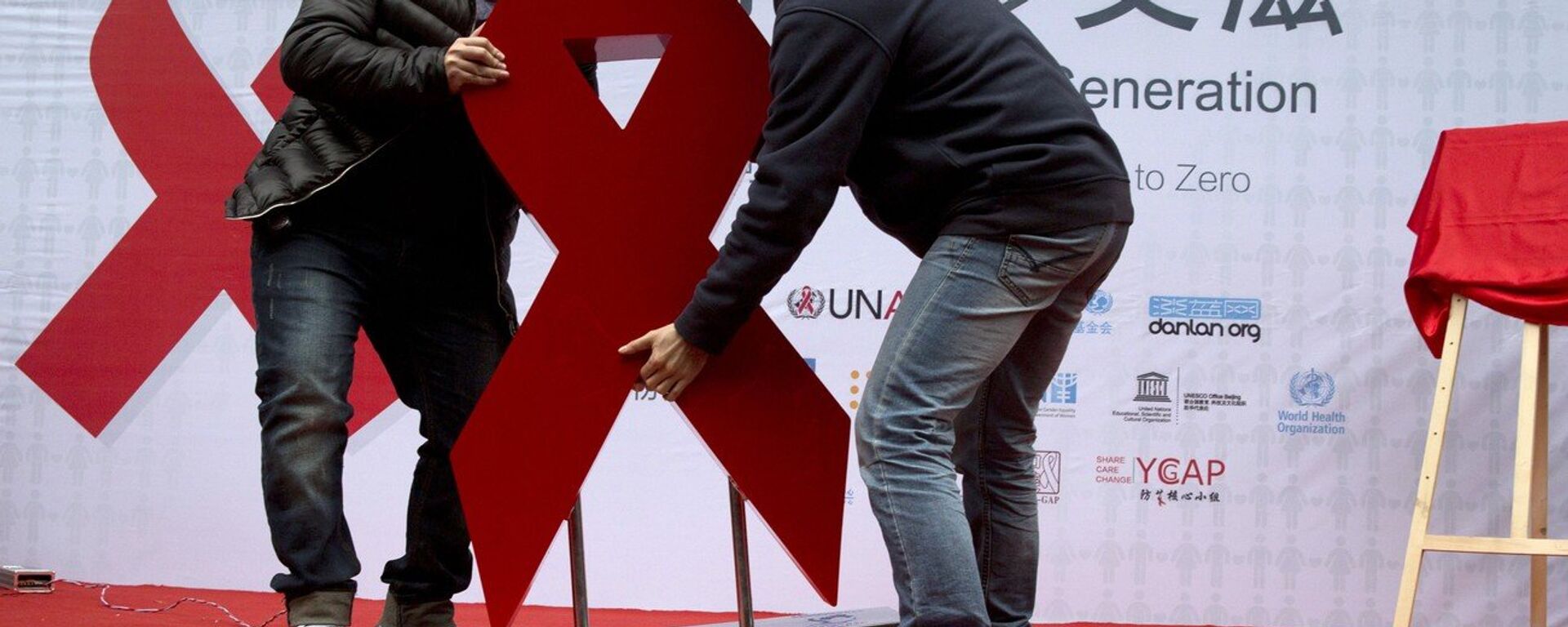
1 December 2020, 23:07 GMT
For its part, Eswatini has
achieved the 95-95-95 target, which means that 95% of the country's people living with HIV know their HIV status, of whom 95% are accessing treatment and that 95% of people on treatment have a suppressed viral load. The ‘95-95-95’ deadline is 2030, meaning Eswatini reached the target a decade in advance.
"Eswatini and Botswana are success stories," said Dr. Anthony Ajayi. "Both countries have significantly expanded access to testing and treatment and nearly eliminated the mother-to-child transmission of HIV (…) Community-based HIV response programs, social protection programs, male circumcision, services integration, universal test and treatment and couple testing, and universal health coverage are effective strategies and practices used in fighting HIV in Africa."
But that is not all: more African countries have made excellent progress, including Cape Verde, Kenya, Lesotho, Malawi, Nigeria, Rwanda, Uganda and Zimbabwe, according to Torpey.
"Malawi has been reporting lower incidence than was the case over the past several years," emphasized Adamson Muula. "International partnerships such as the US government's PEPFAR program (also tackling malaria) and the Global Fund (also fighting malaria and tuberculosis) and resilient national health systems have ensured that the pandemic is reduced."
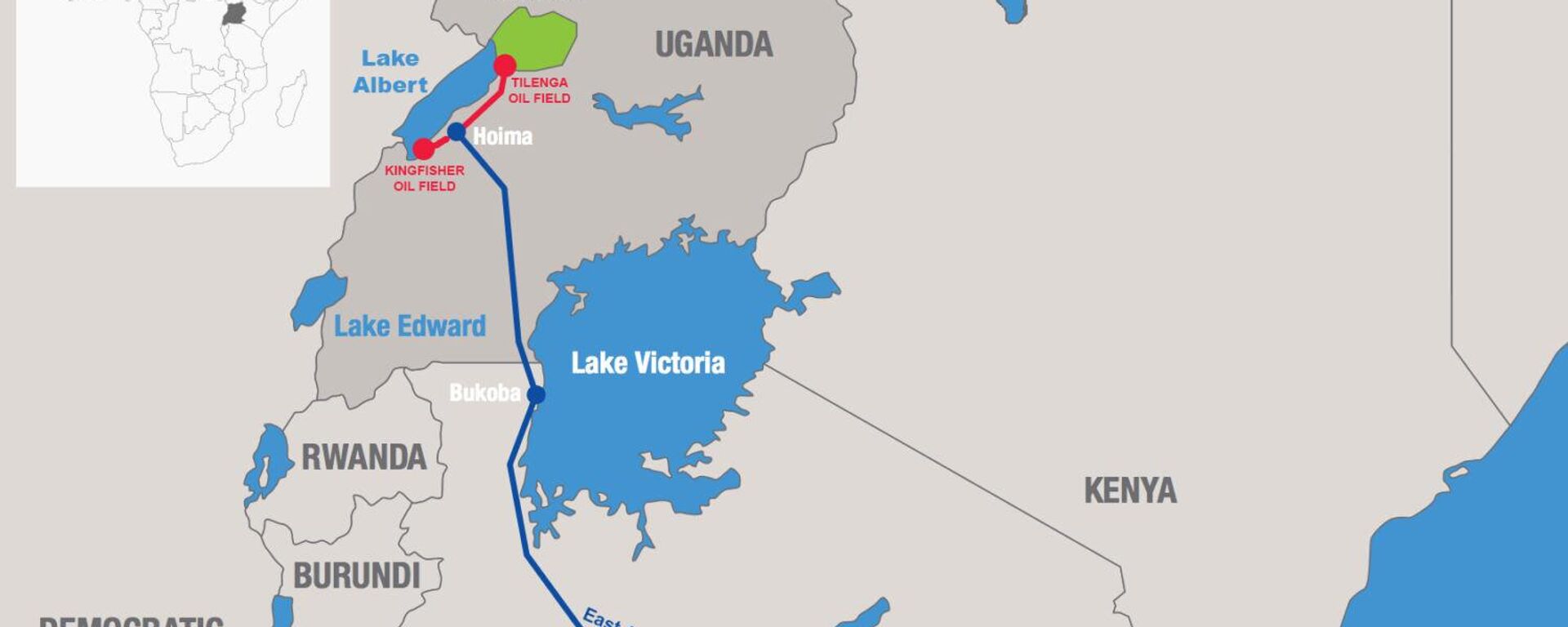
24 October 2022, 13:47 GMT
Uganda, a landlocked country in East Africa, has been battling the HIV and AIDS epidemic for the last 40 years, noted Dr. Nelson Musoba. He explained that the country used the UNAIDS global approach "to customize it here at home and worked with that." There are things that have been done on the national level, but there are also mechanisms and best practices taken from the global experience, he explained.
"The first cases were first described in 1982," Musoba recalled. "The HIV prevalence, back when the average was about 18%, was a double digit figure. And then, that message of HIV was almost a death sentence. We've seen HIV prevalence currently 5.5% - that is markedly reduced. We have approximately 1.4 million people living with HIV and more than 95% of those in treatment. Because of treatment, the quality of life is much better. They are protected. They are able to do their work. But we also still have a high rate of new infections. So lots of progress, but still some work to do."
According to Muula, "it is pleasing to see" that for some time, the world has joined hands in the fight against HIV and AIDS, although challenges remain.
"African countries have individually and in partnership with others mounted interventions which have started to bear good fruit. In several African countries, the incidence (new cases) has been dropping each year," he stressed.
The professor particularly singled out the universal "Test and Treat," which, according to him, has become a "game changer" in Africa. He also noted that in places where such health services are provided, reasonable levels of acceptability are often achieved.
"There is a need for continued efforts to ensure that mother-to-child transmission of HIV is eliminated globally," Muula underscored. "This can be achieved if all expectant mothers who are living with HIV are on highly effective antiretroviral therapy and have achieved viral suppression. This is achievable, and it appears that in our lifetime such goals are realistic."
African countries can defeat the AIDS/HIV pandemic if they coordinate their efforts within the continent and instrumentalize international support, according to Dr. Glory Florentine, clinical doctor, trauma psychologist and SRHR expert from Tanzania.
"If we coordinate action that is required to stop the effects of the epidemic with a precise focus to reach those most affected, especially the children, adolescent girls, women and the key population, then we will be able to reach [our] 2030 goal, and especially in as long as we have known the countries where the prevalence is very high or the cases are very high. Then the power or the energy should be set in those areas so as to reduce to see what is lacking and put the efforts in. And this is a worldwide public health concern. So it's a world call. It's a world initiative. So all of us should put our hands in it so as to reach the 2030 goal," Florentine concluded.
